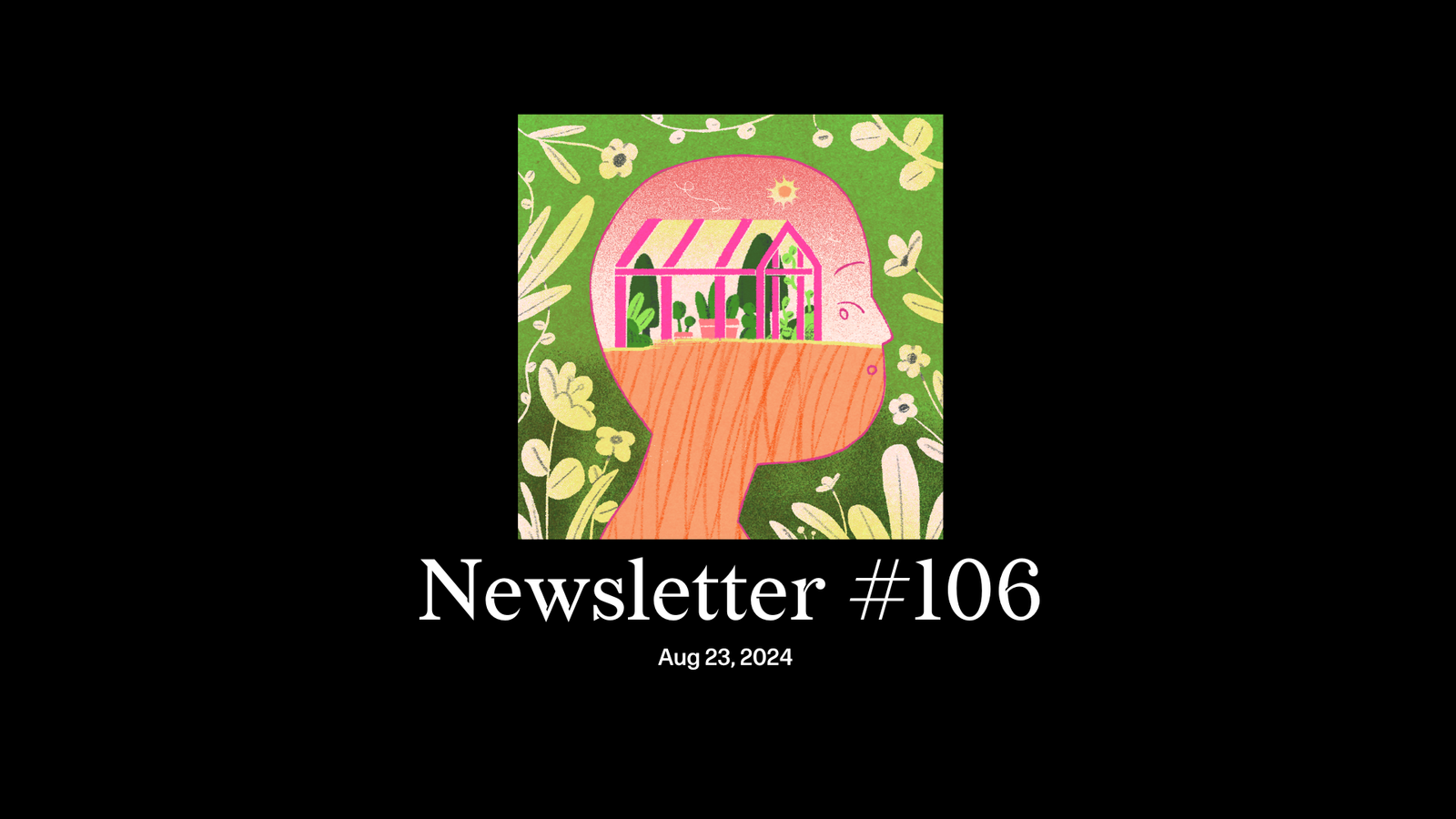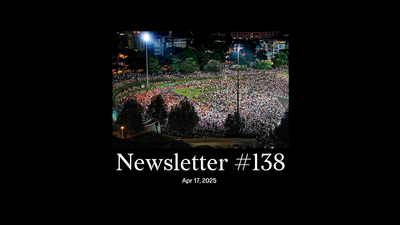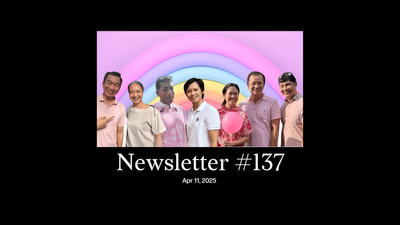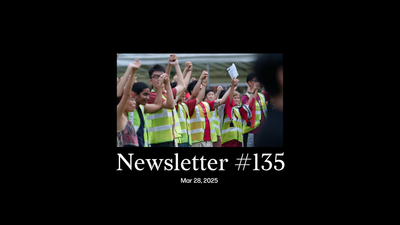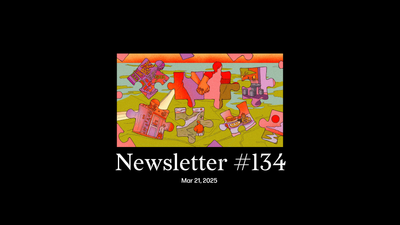Dear reader,
New section: Behind Jom’s art, with Charmaine Poh. Jom has always emphasised the importance of our visual language, an effort led by Charmaine, our co-founder and head of visual culture and media. Inspired partly by The Atlantic, we’ve decided this week to start a short new section in the newsletter where Charmaine explains the creative direction of the artist we’ve commissioned. Think of it as a little conceptual bridge between our visual team and you. It’s a little further down. Reply and let me know what you think! And do share any other ideas you have, we’re eager to keep enriching this weekly communal space.
“Singapore This Week”. We’ve got two blurbs on the maiden Rally by “Larry”. Is he a radical? A WP clone? Elsewhere, we look at how schools are limiting students’ phone usage; a concerted effort on TikTok against overconsumption; Singapore’s new Islamic Studies college; an uptick in arts patronage; the late Christy Smith, local jazz master; PropertyGuru going private; and more.
Essay. How is your brain conditioned by the socio-political environment in which you’re raised? Do its neural networks adapt and reprogramme themselves when you move, say, from an authoritarian state like China to a democracy like Ireland? These are some of the fascinating questions that Linette Lim, a PhD candidate at University College Dublin and first-time Jom author, explores in “My authoritarian brain”.
Linette, a former CNA journalist, was born and raised in Singapore. After 31 years of living here, she moved with the firm to China in 2018, where she later experienced the harshness of its “zero-Covid” policies. In 2022, she moved to Dublin, where her research involves using “mixed methods, including experiments and computational text analysis, to study information manipulation in authoritarian regimes.”
This work takes her also to Taiwan, which is where she picked up a book, 台語解放記事 (Chronicle of the Emancipation of the Taiwanese Language). Its subtitle: “A guide for Taiwanese people with ‘Chinese-language brains’”. The book prompted her to e-mail Jom in January with a pitch. Building off this rich tapestry of experiences, Linette invites each of us to question our instinctive modes of thinking and acting.
“When we were about to leave, I spotted a police van parked at the end of the street. ‘Do you think the police is here because of a noise complaint?’ I asked someone. They looked incredulous. ‘No, dear. The Garda is here to help block the road, and it’s good fun for the kids. Go see.’...Later, I kept asking myself why I instinctively linked police presence in the neighbourhood with wrongdoing.”
Linette takes us through her own journey, as she becomes more aware of her own social conditioning, and attempts to rewire her “authoritarian brain”, opening herself up to more of life’s possibilities in the process. Hers is an urgent message for each of us, delivered calmly, intelligently, and humbly. Read it, marvel at your own brain’s neuroplasticity, and think about your own path to freedom.
Jom fikir,
Sudhir Vadaketh
Editor-in-chief, Jom
Behind Jom’s art, with Charmaine Poh
For this week’s essay, Jolene Tan illustrated two concepts of freedom. In the header image, a figure opens a door to an array of possibilities, despite the omnipresent eyes surveilling their every move. Isaiah Berlin’s call to strike a balance between positive and negative liberties suggests that the paths to freedom are multifold. The spot image reflects the author’s attempt to reconfigure her authoritarian brain: the greenhouse of the mind endlessly striving to match the diversity, the complexity, of the world’s ecology. Jolene’s use of vivid colours, shading, and subtle expressions lend themselves wonderfully to this essay.
If you’ve enjoyed our newsletters, please scroll to the bottom of this page to sign up to receive them direct in your inbox.


